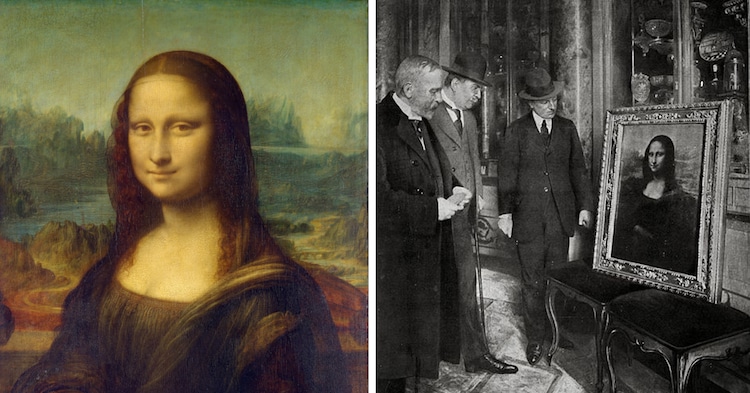
Sociology defines culture as a way that people interact with each other. This interaction can be either physical or symbolic. This interaction is typically limited to the first few month of a person’s adult life. But it can continue into modern times. What is important to recognize about culture is that it isn't static. Culture is dynamic and is constantly changing.
Individualism
Individualistic culture values the individual over collective value and emphasizes individualism. This results in more individualistic individuals who are more confident of their abilities and self-reliant. Individualism can be detrimental to the unity of the group and cause overall disharmony. Here are some reasons why individualism makes culture a poor place. Continue reading to find out about other sociological characteristics that make cultures individualistic.

Community
Sociology defines culture as a collection of intangible aspects of human life. These factors include shared beliefs or values, communication systems and practices. Culture can also refers a group's common possessions. These factors are distinct from social structure and economic aspects. Culture influences a person's identity, behavior, and decisions. Culture gives people a unique perspective and a sense for direction.
Rituals
A ritual is an activity or event that is performed in a particular way for religious or other reasons. This often includes a ludic aspect, where participants perform ritualistic acts with great care. Participants are expected to pay close attention to their bodies and behaviours during rituals. The formality of rituals makes them different from other social interactions. It might be an ancient custom, or a recent cultural innovation. But it can have a significant impact upon the way we live today.
The symbols of shared ownership
Language, symbols norms, beliefs, and norms are the components of culture. Sociology describes culture as shared by groups of people. Both sociological and ethnological use the term culture. The former claims that cultures are universally natural, while anthropologists view cultures as unique to individuals. No matter what the source of these symbols or norms, they have an impact on society. This can be traced back as far back as the beginning of humankind.

Languages
According to the American Sociological Association, culture is "all aspects of a group including language, beliefs and rules." It also includes group and individual communication. Languages could be the basis for identity in an individual or group, and they can also play a significant role in social differentiation. Studying language and culture can be an effective way to understand the impact of language differences on society. It is also useful to understand the history and evolution of language.
FAQ
What is popular music culture?
Popular music culture is a dynamic phenomenon that can take many forms.
Popular music culture can be defined by its use certain types of music (e.g. rock, jazz) or lyrics. It also covers the influence of visual media like film, television, fashion advertising, and so on, on artists' careers as well as public perception.
It's also how fans interact and support their favorite artists.
One element of popular music culture is the emergence of "superstars" - artists who have achieved fame and fortune for themselves.
These superstars often transcend genres and become cultural icons, and their popularity has influenced the evolution of popular music itself.
The popular music culture also includes:
* The rise in recording technology - from acoustic instruments, to electric guitars, and microphones.
* The invention of the record player and the radio;
* The birth of the rock 'n roll era;
* The introduction of television and film
* The birth of MTV/VH1;
* The creation of the internet.
Who invented the word Pop Music?
Frank Zappa created it. He coined the term "pop music" to describe his musical style.
He stated that he wanted music that was accessible to all. This is why he called the music "pop music".
Zappa also invents the phrase "You'll know it's pop when ..."". It means that something is extremely popular if you have many people enjoying it. Michael Jackson's Thriller albums are among the most-sold.
Zappa's definitions of pop music are different than the current. Pop music is today all music. But back then, only certain kinds of music were considered pop.
What can pop culture teach you?
Our society today places more importance on material goods than all other things. This is especially true of young people. They spend hours per day looking at screens. They spend hours looking at screens, playing video games, and surfing the internet. All of these distract them from the task at hand, which is to complete school work. They end up failing classes as a result.
We live in a world where everyone wants to fit in. That means being popular. Popularity hinges on having money, clothing, and other possessions. Some people do this by doing things that aren’t right.
We are too dependent upon technology. Technology has given us access to all kinds of information. Unfortunately, not everything is accurate. There are many false rumors floating around the Internet. These rumors spread quickly as people share them via social media. It's easy just to post something and not verify its authenticity.
People have lost the ability to think critically. They believe what they see online. They trust what they hear on television and in magazines. They stop thinking for their own sake. Instead, they follow others.
We lose control when we rely on other people to tell us what's up. Pop culture teaches you to depend on others. It can also lead to lazy people. It's true that there is truth out there but we don’t always find it.
How can pop culture be used in marketing strategies?
To understand how to use pop culture in your marketing strategy, you need to look at the trends within it.
Let's take, for example, the promotion of a new movie. What type promotion could your company run?
You could make a trailer using clips taken from the movie. You could also find a clip featuring one of your products/services and include it in the trailer.
Or perhaps you could create a parody version of the trailer using other famous films.
A promotional campaign could be created based on the plotline of the movie if you were promoting a product/service that is related to the movie's theme. One example: If you are promoting a product or service that helps astronauts keep healthy while they travel through space, it might make sense to promote the product.
You could do promotions based upon the plotline of a business related to the movie's subject. For instance, if your company sells food, you could offer free food samples to customers who buy tickets to see the movie.
Are Tik Tok and its pop culture?
The answer is yes It's not limited to teenagers. You can share these videos with your friends to express yourself, show off, or just for fun.
Every day, the app is used by over 200,000,000 people worldwide. And this number grows by millions each day.
This makes TikTok an incredible opportunity for brands to connect with consumers and build meaningful relationships.
TikTok is also home to many influencers who have built massive followings on the platform. These creators produce original content that engages people around the world.
So what are waiting for? These are the four best ways to profit from this trend.
-
Create viral content
-
Engage Influencers
-
Use Visuals Effectively
-
Be creative with your audience
What are some positive features of pop culture?
Pop culture doesn't have to be bad. Pop culture gives people something to talk. Pop culture also helps people express creativity. Artists can use pop culture to help promote their work.
Pop culture's greatest asset is its ability to bring people together. Everyone wants the same show. Everyone loves the same music. And everyone likes the same movies. Pop culture allows us all to connect.
Not all pop culture is healthy. Some movies glorify violence. Some TV programs mock people with mental disabilities. Some bands even encourage their fans to use drugs.
What can we do about pop culture's negative aspects?
We need to try to avoid the bad aspects of pop culture. We should not allow it to influence our lives. It can lead to problems in our health. It can even lead to criminal activity. It can even impact our relationships.
We should also think about whether pop culture is helping or hurting society. Is pop culture promoting good values or negative ones? Are people being influenced to do bad things?
We should also ask ourselves if the world in which we live is a happy one. Are we satisfied with the music we listen? The TV programs we watch What clothes are we wearing?
If we care about our future, then we have to be accountable for our actions. It is up to us to choose the kind of world that we want. We can then choose the right pop culture.
What are the best examples of pop-culture today?
Pop Culture is the 21st century's art form. It includes all types of entertainment including music, film TV, videogames, fashion and advertising. Author Neil Postman coined the term in his book Amusing Ourselves To Death (1985). He defined "pop" as a style of mass communication that uses cheap tricks and formulaic devices to create an illusion of spontaneity and uniqueness.
He said that people don't experience true joy because they are conditioned to look for media experiences that make them feel better than others. He claimed that young adults have lost their ability to think critically due to this type of cultural expression.
Pop culture can also refer to popular culture and consumerism.
Statistics
- In 1987, US films captured 56% of the European film market. (socialsci.libretexts.org)
- Yet a Nielsen study shows they account for 42% of the country's most-watched content on streaming services. courtesy Nielsen (npr.org)
- Less than a decade later, that statistic rose to 90% (Dager, n.d.). (socialsci.libretexts.org)
- For example, the term hater meaning someone who strongly undermines or criticizes others, often due to pathetic jealousy, likely emerged from hip hop culture, such as the term playa hateras, used by influential rapper Biggie Smalls as early as 1995. (simplicable.com)
- According to Dictionary.com, popular culture, or low culture as it is sometimes referred to is comprised of the “cultural activities or commercial products reflecting, suited to, or aimed at the tastes of the general masses of people” (7/21/19). (socialsci.libretexts.org)
External Links
How To
What is pop music in movies?
Popular Movies Culture is a collection of all things entertainment including books and magazines, newspapers, television programmes, websites, blogs social media, apps, games and more.
Movies can be categorized into several types: comedy, drama, horror, action/adventure, fantasy, science fiction, romance, thriller, war, documentary, animation, and westerns.
Movie plots generally follow a pattern of predictable events that conclude with a satisfying resolution.
Films' success is dependent on how closely they follow this formula.
Some common plot points include:
-
A protagonist who must overcome obstacles to achieve his/her goal;
-
The antagonist opposes the protagonist throughout film.
-
A moral dilemma that forces the protagonist to make a choice.
-
The twist that ends all.
If your story doesn't fit into one of these categories, you may need to reevaluate your concept or outline before you begin writing.
The following questions will be of particular importance:
-
How do I establish my setting?
-
What is my protagonist looking for?
-
Why should readers care about my story?
-
Where is my story heading?
-
Who is my main character
-
Will there be any conflict?
-
What is the climax of this story?
-
What is my resolution
-
Is the end happy or sad?
-
Do I have to introduce new characters
-
Do I have multiple settings in my story?
-
Are there subplots?
-
Are there major themes?
-
Can I tell a complete story within just one chapter?
-
Am I using dialogue effectively?
-
Are my words clear and concise?
-
What is the context for my vocabulary?
-
What if I have used active voice, instead of passive?
-
Are there spelling or grammar errors?
-
Is my grammar correct?
-
Are there too many adverbs?
-
Is there anything else I could improve?
-
After I finish editing, what's my first impression?
Your job is to not only create a book that's good, but to also get it published.